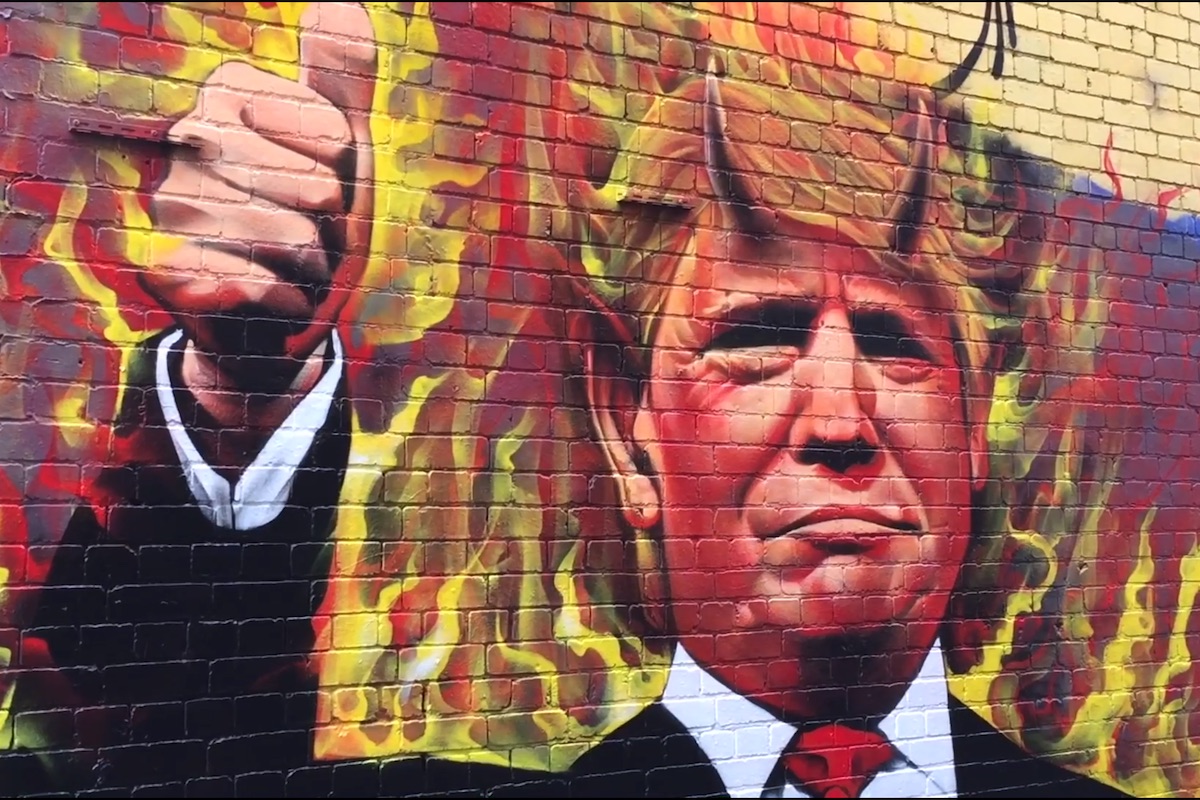Throughout history, debates surrounding the concept of the Antichrist have sparked controversy and curiosity. The question of whether Donald Trump could be the Antichrist has been a topic of discussion among religious scholars, political analysts, and the general public. This article dives deep into the claims, evidence, and historical context to provide a balanced and informed perspective on this controversial topic.
The rise of Donald Trump as a global figure has sparked various interpretations and theories about his role in contemporary politics and religious prophecies. Among these theories, the notion of Trump as the Antichrist has gained significant attention, especially within religious circles. This article aims to explore this idea while maintaining objectivity and relying on credible sources.
This discussion is not intended to promote fear or speculation but rather to educate readers on the historical and theological context of the Antichrist concept, as well as its modern interpretations. By the end of this article, you will have a clearer understanding of the claims and counterarguments surrounding this topic.
Read also:Exploring Ashton Kutchers Hometown A Journey Through His Roots
Table of Contents:
- Donald Trump's Biography
- What is the Antichrist?
- Trump and Biblical Prophecies
- Historical Context of the Antichrist
- Modern Interpretations of the Antichrist
- Traits of the Antichrist: Does Trump Fit?
- Religious Perspectives on Trump as Antichrist
- Political Impact of the Antichrist Theory
- Debunking Common Myths
- Conclusion and Final Thoughts
Donald Trump's Biography
Early Life and Career
Donald John Trump was born on June 14, 1946, in Queens, New York City. He is the fourth child of Fred and Mary Trump. Trump attended the New York Military Academy and later graduated from the Wharton School of the University of Pennsylvania with a degree in economics in 1968. His early career began in real estate, where he worked closely with his father's company, Elizabeth Trump & Son.
Biodata
| Full Name | Donald John Trump |
|---|---|
| Date of Birth | June 14, 1946 |
| Place of Birth | Queens, New York City |
| Profession | Businessman, Television Personality, Politician |
| Political Party | Republican Party |
What is the Antichrist?
The concept of the Antichrist originates from Christian theology and is mentioned in the New Testament of the Bible. The term "Antichrist" appears in the epistles of John, where it is described as someone who opposes or impersonates Christ. Over time, this idea has evolved into a broader symbol of evil and deception in various religious traditions.
Key Characteristics of the Antichrist
- Charismatic leader who deceives many
- Opposes or denies the teachings of Christ
- Associated with power, wealth, and influence
- Often linked to end-times prophecies
Trump and Biblical Prophecies
Some proponents of the theory that Donald Trump is the Antichrist point to specific biblical passages and historical interpretations. For example, certain verses in the Book of Revelation are often cited to support this claim. However, it is essential to examine these interpretations critically and consider alternative perspectives.
Revelation and the Number 666
The number 666, often associated with the Antichrist, has been the subject of much speculation. While some have attempted to connect this number to Donald Trump, these claims lack substantial evidence. Biblical scholars emphasize the symbolic nature of these numbers rather than their literal interpretation.
Historical Context of the Antichrist
The idea of the Antichrist has existed for centuries, with various figures throughout history being labeled as potential candidates. From Roman emperors to modern political leaders, the Antichrist theory has evolved alongside societal changes and religious beliefs.
Read also:Toya Wright Husband A Comprehensive Guide To Her Love Life And Relationships
Examples from History
- Nero: Accused by early Christians of being the Antichrist due to his persecution of Christians.
- Hitler: Often cited in modern discussions due to his authoritarian regime and genocidal actions.
Modern Interpretations of the Antichrist
In contemporary times, the Antichrist concept has taken on new dimensions, influenced by global events and technological advancements. The rise of social media and the internet has allowed for the rapid spread of theories and misinformation, making it crucial to approach these discussions with critical thinking.
Pop Culture and the Antichrist
Modern media frequently portrays the Antichrist in movies, books, and television shows. These depictions often reflect societal fears and anxieties about power, corruption, and the unknown.
Traits of the Antichrist: Does Trump Fit?
When examining the characteristics traditionally attributed to the Antichrist, it is important to assess whether Donald Trump aligns with these traits. While some may argue that his charisma and controversial policies fit certain descriptions, others point out significant differences.
Key Traits Compared
- Charisma: Trump is known for his charismatic personality and ability to captivate audiences.
- Opposition to Christianity: Critics argue that some of Trump's policies conflict with Christian values, while supporters claim he supports religious freedom.
- Power and Influence: As a former president, Trump wielded significant political power and maintained a strong presence in global affairs.
Religious Perspectives on Trump as Antichrist
Religious leaders and scholars have differing opinions on the Antichrist theory as it relates to Donald Trump. Some view it as a misinterpretation of scripture, while others believe it highlights important theological questions about power and morality.
Christian Views
Many Christian denominations emphasize the importance of faith and personal responsibility over speculative theories. They encourage believers to focus on living according to biblical principles rather than engaging in fear-based speculation.
Political Impact of the Antichrist Theory
The belief that Donald Trump is the Antichrist has had a significant impact on political discourse. It has fueled divisions within religious communities and contributed to the polarization of political opinions. Understanding the roots of these beliefs is essential for fostering constructive dialogue.
Divisions Within Communities
Some religious groups have experienced internal conflict over this issue, with members holding opposing views. This highlights the need for respectful conversation and mutual understanding.
Debunking Common Myths
Several myths surrounding the Antichrist theory have gained traction, particularly in relation to Donald Trump. It is important to address these myths with evidence and logical reasoning.
Myth: Trump's Policies Fulfill Prophecy
While some claim that Trump's actions align with biblical prophecies, this interpretation often lacks historical and theological context. Experts stress the importance of examining these claims critically and avoiding hasty conclusions.
Conclusion and Final Thoughts
In conclusion, the question of whether Donald Trump is the Antichrist remains a complex and controversial topic. This article has explored the historical, theological, and modern interpretations of the Antichrist concept, as well as its application to Trump's life and career. While some may find merit in the theory, it is crucial to approach such discussions with an open mind and a commitment to truth.
We encourage readers to engage in thoughtful reflection and discussion about this topic. Feel free to leave your comments below or explore other articles on our website for more insights into related subjects.
References:
- BibleGateway.com
- National Geographic: The Antichrist Through History
- Pew Research Center: Religion and Politics


